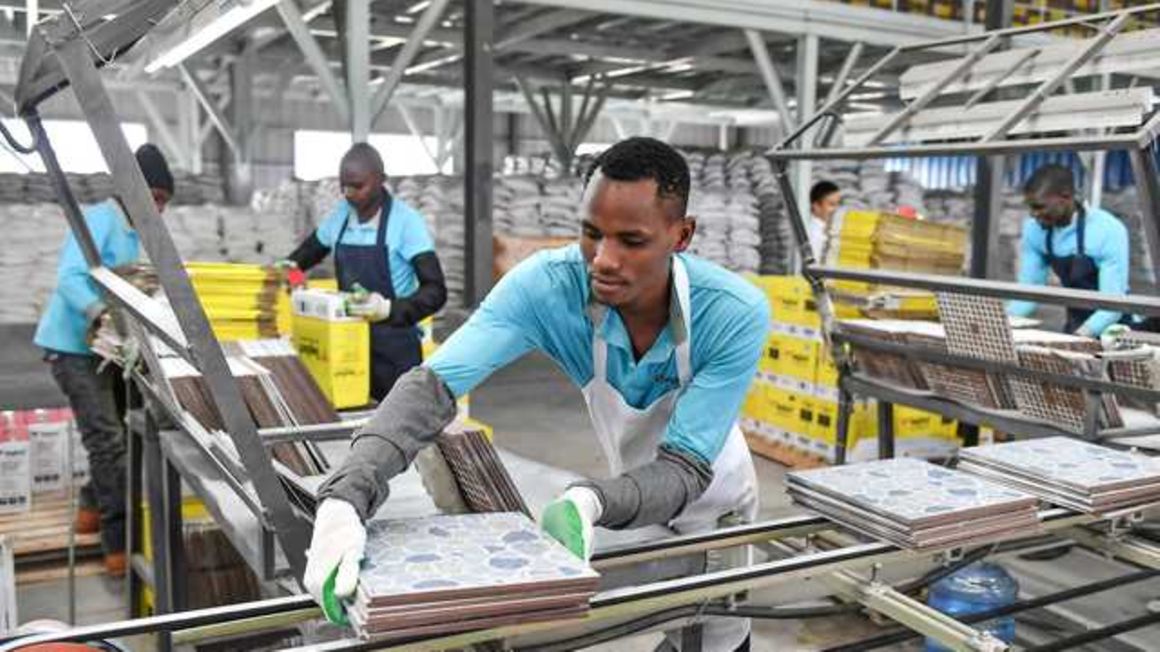Workers at an assembly line at Twyford Ceramics, a Chinese tiles manufacturing company, in Kajiado County, Kenya. PHOTO | XINHUA Kenyan manufacturers facing liquidity challenges due to the Covid-19 pandemic are up in arms against the government over new tax increments.
They argue that new taxes, high cost of electricity, high import declaration fees among other levies only add to their woes by reducing profitability and slowing down recovery of business hit hard by Covid-19 measures.
KAM wants the government to instead address demand and liquidity challenges facing businesses.
Kenyan manufacturers facing liquidity challenges due to the Covid-19 pandemic are up in arms against the government over new tax increments and the high cost of power.
They argue that new taxes, high cost of electricity, high import declaration fees among other levies only add to their woes by reducing profitability and slowing down recovery of business hit hard by Covid-19 measures.
The measures plus an influx of new taxes has led to the collapse of a number of industries including slowing down the value chain in hotel and hospitality industry among others.
This follows a report on the impact Covid-19 on the manufacturing sector conducted by Kenya Association of Manufacturers and KPMG between May 2020 and June 2021.
The survey was conducted a few months after the measures to mitigate the spread of the virus were first announced.
“On 20th May 2020, KAM and KPMG launched a report on the impact Covid-19 on the manufacturing sector,” said Mucai Kunyiha, chairman KAM. Higher cost of business
“The pandemic has had adverse effects on manufacturers on business operations with many manufacturers experiencing: reduced demand, depressed production capacity, cash flow constraints, logistics challenges and in some cases, downsized workforce.”
The survey titled, Impact of Covid-19 on the manufacturing sector in Kenya: One year on, reveals that on liquidity, company responses to relieve cash flow challenges has been lesser compared to 2020.The liquidity challenge faced by businesses is due to delays in payment of tax refunds due to businesses by the Kenya Revenue Authority (KRA), depreciation of the Kenya shilling against the US dollar that has driven up the import bill, and requests for extension of credit period by wholesalers and distributors.While 66 percent of surveyed firms negotiated payment plans with their suppliers in 2020, only 27 percent of the surveyed firms have done so in 2021.Similarly, the number of firms that reached out to commercial banks to restructure […]
